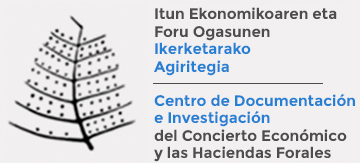The 2nd IGCOORD Training School on “fiscal federalism/ fiscal decentralisation” will take place in Brno, Czechia, at Masaryk University, between 24-27 June, 2024.
About this training school
The training school brings together PhD students and young career researchers working on intergovernmental coordination from different disciplinary angles and research questions. The training school covers the issues connected with fiscal federalism/ fiscal decentralisation. The main principles of fiscal decentralisation, the issues connected with the structure of local revenues, local budget management and local service delivery will be covered in the program. The school is being delivered by leading scholars of this COST Action from across Europe. Each session will be led by the teaching team, who will introduce the key conceptual terms and arguments of the debate. Participants will engage in the discussion of issues and practical exercises of real-world scenarios of intergovernmental coordination and they receive the opportunity to present and get feedback on their own research.
The training school brings together young researchers from different disciplinary backgrounds with an interest in fiscal decentralisation and one of the critical aspects of intergovernmental coordination; spanning from comparative research on policy problems and solutions involving coordination; to practical examples of coordination problems and how they were managed or overcome by political actors; to the politics of coordination and normative questions of legitimacy and accountability of interdependent decision-making in multi-level contexts. Each participant will give a paper presentation about their own research project as part of the training school.
Learning outcomes
By the end of the training school, trainees should be able to:
- Distinguish and discuss concepts of the fiscal federalism and the fiscal decentralisation, their main characteristics and normative foundation (especially the principles provided by the European Charter of Local Self-Government).
- Describe and compare incidents of the fiscal decentralisation and the main issues arising in practice for political actors and voters.
- Analyse and evaluate the costs and benefits of coordination tools related to local self- government finance, to identify potential solutions to policy problems.
- Understand the roles of different financial sources of local self-government, their pros and cons, and their impacts on local democracy.
- Understand the local budgetary process.
- Understand the principles and practical problems of local service delivery.
- Provide advice on coordination problems related to fiscal decentralisation and recommend options to solve them to practitioners.
- All trainees will receive a certificate of participation.
Practical details
- The duration of this training school is 4 working days.
- Grants will be provided for up to 25 accepted participants.
- A contribution for travel costs (up to 350€ in total), as well as accommodation and subsistence costs (per diem allowance of 100€) for 5 days/nights.
- Expenses are reimbursed 30 days after the event has taken place and the reimbursement claim is correctly submitted.
- There are no registration fees.
- Participants will be expected to make a short video and/ or blog post describing their experience.
Who should apply?
Eligible to apply to the training school are: Graduate and PhD students, postdoctoral researchers, and young career investigators under the age of 40 who study at and/or are affiliated with a legal entity (university or research institution). Young researchers from any branch of social sciences, law and the humanities are welcome to apply, provided they are interested in the theories and practices of intergovernmental coordination.
Applicants to the training school should:
- Have an e-cost profile.
- Apply to join one of the WGs of the action.
- Submit a motivation letter, not exceeding 300-500 words, which must include a clear indication of experience relevant to the topic of the training school; provide a rationale of why you are interested in the training school and how you envisage the training school to contribute to your learning and research objectives; an indication of whether you would like to be considered for funding.
- Submit a short CV (2 pages maximum);
- Submit a short presentation of their research (maximum 3 pages double-spaced).
Please send your application to IGCOORD’s Grant Holder Manager at: info@igcoord.eu
The closing date for applications is April 15, 2024.
Selected applicants will be informed about the result of their application via e-mail by April 30 2024. Applicants who will not receive a grant but do receive an invitation can participate with their own or their institution’s funding. Accepted trainees will be invited to prepare a short presentation of their research. Every presentation will be recorded. Videos will be made available to all participants for internal viewing, and there will be time set aside in the programme for the discussion of the presentations and for opportunities for improvement by both colleagues and trainers.
Accepted participants (trainees) will be required to provide the following documents along with their grant reimbursement claim: Scanned copies of invoices, receipts, bills, tickets and other proofs of payments for all types of costs, including hotel accommodation, travel, meals, etc.
For further information click here.
‼️The 2nd IGCOORD Training School on “fiscal federalism/fiscal decentralisation”‼️
📍Brno, Czechia, at Masaryk University
🗓️ 24-27 June🗣️Accepted trainees will be invited to prepare a short presentation of their research.
Applications are open!!
👉 https://t.co/Hxij2jVxsA pic.twitter.com/h7cEe07Jl5
— Ituna Research Center on Fiscal Federalism (@itunaconcierto) January 12, 2024



